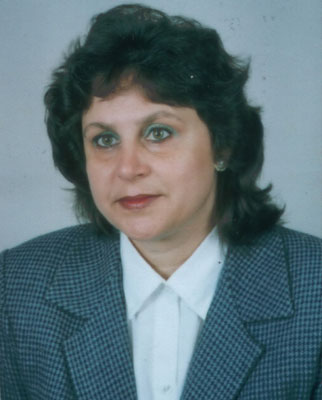Associate Prof. Stefka Tepavicharova is the developer of a series of medicinal products from the salty lakes near Burgas. She is always smiling and seems full of vitality and energy. For 15 years she has been developing unique products based on curative mud in her modest laboratory at the Institute of General and Inorganic Chemistry of the Bulgarian Academy of Sciences.
It all started when people who had experienced the beneficial effects of the mud, turned to her team with a request to help them find healing mud suitable to use at home. So in the laboratory in Sofia product development started and scientists in Burgas finished the projects. The task came from doctors in physiotherapy centers across the country. Recently Norway, Italy, France and Russia have started to show interest in the work of the Bulgarian scientists. Small quantities are also exported to the U.S. It turns out that interest abroad is bigger than that in Bulgaria. A number of people look for contact with the team of Associate Prof. Tepavicharova after they visited the Bulgarian Black Sea and experienced the healthy benefits of mud therapy.
 “If we were a big manufacturer probably would've taken over most of the European market by now," says Stefka Tepavicharova. "Our task is innovative. We want to show that there is something unique in our country, which could bring more tourists. Development of products that are typically Bulgarian and use the unique Bulgarian nature has become my cause. I started with the idea to make sure that Bulgaria will become popular around the world with these natural treasures. I managed to infect my colleagues with the same enthusiasm. We are optimistic that the idea will lead to something more serious and help the development of spa industry in Bulgaria. So we expect people who are involved in promoting Bulgaria as a tourist destination to pay more attention to our work. It is really important for our country to be seen as a destination with great opportunities for spa and wellness tourism. We possess unique marine and plant products suitable for various therapies."
“If we were a big manufacturer probably would've taken over most of the European market by now," says Stefka Tepavicharova. "Our task is innovative. We want to show that there is something unique in our country, which could bring more tourists. Development of products that are typically Bulgarian and use the unique Bulgarian nature has become my cause. I started with the idea to make sure that Bulgaria will become popular around the world with these natural treasures. I managed to infect my colleagues with the same enthusiasm. We are optimistic that the idea will lead to something more serious and help the development of spa industry in Bulgaria. So we expect people who are involved in promoting Bulgaria as a tourist destination to pay more attention to our work. It is really important for our country to be seen as a destination with great opportunities for spa and wellness tourism. We possess unique marine and plant products suitable for various therapies."
The salty lakes near Burgas are unique with their lye and mud. These are products related to salt production. The fluid mass that remains after removal of sea salt is called sea lye. The high content of magnesium is its main active ingredient. It is used for massage or exfoliating gels and masks that nourish the skin. Besides its relaxing effect this product treats joint - muscle problems and nerve disorders. The mud of the Burgas lakes is also unique and very rich in microelements.
"In Bulgaria we can develop unique products that are to attract foreigners to our country," says associate professor Tepavicharova.
“Our products come in two series. One is only based on sea lye and the other combines mud with various Bulgarian essential oils or herbal extracts. We have products that combine the Pomorie mud with extracts of Bulgarian rose. We also use juniper and lavender oil. We have a wide range of therapeutic extracts of various herbs. We produce various facial cleansing gels or creams with exfoliating particles, based on curative mud. There are nourishing masks based on sea lye, as well as facial and body creams and hair care products. We have products for the treatment of varicose veins, based on chestnut extract, arnica and lemon oil. They have already proven their effect and a number of doctors use the products we create.”
English version: Alexander Markov
Radmila Sekerinska from North Macedonia appointed NATO Deputy Secretary General NATO Secretary General Mark Rutte has appointed Radmila Sekerinska from North Macedonia as the next NATO Deputy Secretary General. “I am happy to announce..
The traditional Bulgarian Christmas picnic, organized by the Bulgarian Cultural and Social Association "Rodina - Sydney" and the Bulgarian School "Dr. Petar Beron", will take place on December 8 , 2024 in St. Leonards Park in Sydney. "We have..
The Bulgarian national minority in Albania is one of the largest in the country, according to data from the latest official population census. A total of 7,057 individuals identified as Bulgarians. For comparison, 23,000 people identified as Greeks,..

+359 2 9336 661
